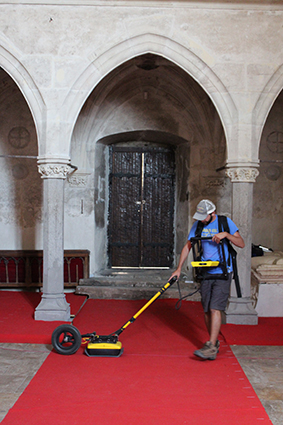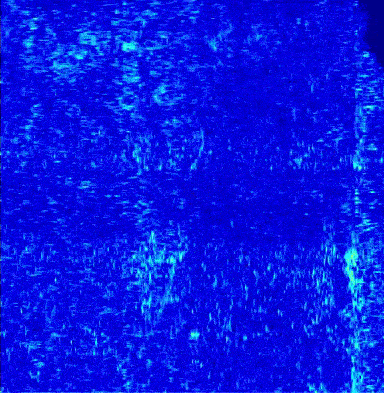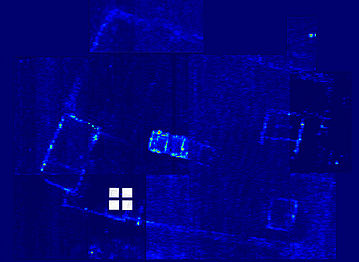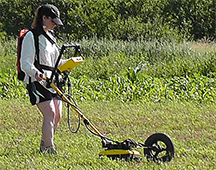Fieldwork
This listing expired on December 1, 2022. Please contact archaeology@archaeotek.org for any updated information.





Location: DJ133 65, Sânpaul 537188, Romania
Season: June 12, 2022 to August 6, 2022
Session Dates: Session 1: Full Session 2: June 19 - June 25, 2022; Session 3: June 26 - July 2, 2022; Session 4: Full Session 5: July 10 - July 16, 2022; Session 6: July 17 - July 23, 2022; Session 7: July 24 - July 30, 2022; Session 8: July 31 - August 6, 2022
Application Deadline: April 9, 2022
Deadline Type: Exact Date
Website: https://www.archaeotek-archaeology.org/applied-field-geophysics-gpr
Program Type:
Field School, Volunteer
RPA Certified:
No
Affiliation:
Archaeological Techniques and Research Center (Canada); Dacian and Roman Civilizations Museum (Deva, Romania); Haaz Rezso Muzeum (Odorheiu Secuiesc, Romania)
Project Director:
Dr. Andre Gonciar (ArchaeoTek / BioArch Canada); Dr. Zsolt Nyaradi (Haaz Rezso Muzeum, Romania)
Project Description:
Our Ground-Penetrating Radar (GPR) Field Applications Workshop is an intensive 5-day training program in GPR survey, data acquisition and analysis. The program is designed to offer our participants a very practical, useful and concrete set of professional and research skills that would provide an edge in today’s field/urban survey and exploration job market. Our participants will acquire in a very short time the necessary practical and analytical skills to conduct independent GPR field research.
Field experience with these techniques is an exceptionally useful and lucrative skill to acquire, but training in these methods is limited to expensive manufacturer professional development and/or academic courses. These educational opportunities tend to sacrifice either the theoretical and technical foundations, or the practical use and interpretation of the methods. In contrast, this workshop offers a full set of technical, theoretical, and practical skills for Ground Penetrating Radar (GPR) surveying, for two different GPR system configurations as well as two different antenna frequencies, resulting in variations in resolution and vertical ground penetration. It provides thorough training for field work, processing, and interpretation of intensively modified human landscapes, in an accessible and professional way. Hands-on experience is an essential complement to previous or planned geophysics training for work in earth sciences, geology, geography, urban planning, architecture, surveying, civil engineering, environmental engineering, environmental studies, landscaping, forensics, anthropology, archaeology, cultural resource management (CRM), Classics, and/or history.
One of the unique aspects of our program is its comparative approach, as our participants will learn to operated two different GPR (Noggin, manufactured by Sensors and Software, SenSoft) systems, equipped with different transducers, respectively at 500MHz and 250MHz peak frequency, in two field configurations, cart and rough terrain. Each field team consists in 3 participants on each system, conducting at least 2 full days of data collecting on one of our target exploration sites, ranging from medieval castles (Sanpaul and Vetel), to fortified medieval churches (Meresti), and Roman cities and castra (Micia). Each group will be trained in setting up their own survey grids to optimize data collection and integration, assembling each field system, and collecting the same grid data with each of our two GPRs. All the data collected will be analyzed by each GPR crew, using SenSoft’s EKKO Suite, comparing, integrating and extrapolating the data/results obtained from both 500MHz and 250MHz antennas. At the end of the 5-day Workshop, each group will be required to produce a professional report and present their results in a podium presentation setting.
In terms of practical applications, the two GPR antennas and configurations we deploy during this Workshop are the systems of choice in archaeology, forensics and shallow subsurface urban mapping (SUM), for locating buried structures, graves, utilities, root systems, etc., as well as variations in pedology and geology down to about 4-6m (or 13-19ft) depth. Upon completion of this program, participants will have the skill set and knowledge required to plan, conduct, analyze, and interpret successful GPR surveys in any terrestrial setting. This process will present a variety of anthropogenic and natural challenges, from working in diverse field conditions, to dealing with sites containing a combination of known and unknown modern and ancient features.
Period(s) of Occupation: Geophysics (GPR); Roman Imperial (Provincial); Migration Period; Medieval
Notes:
Intensive Ground Penetrating Radar (GPR) training workshop, focusing in skill acquisition and hands-on field and laboratory applications, in rich archaeological and modern target environments. The workshop is designed for participants to become very effective and proficient GPR operators and analysts. Intensive training on 250MHZ and 500MHz systems, in rough terrain and cart configurations. Team size: 3 participants per session per GPR unit. Proof of full (booster included) Covid-19 vaccination required.
Project Size: 1-24 participants
Minimum Length of Stay for Volunteers: 5 days
Minimum Age: 18
Experience Required: The project is designed as a thorough ground penetrating radar (GPR) training program, both in terms of exploration and data analysis. It provides an intensive hands on experience, focusing primarily on skill acquisition. As such, previous experience is not required. We will teach participants all the necessary skills in the field and laboratory as they engage with various contexts.
Room and Board Arrangements:
We house everyone in double or triple occupancy rooms in a hotel near the target site. Every room is equipped with its own bathroom. Breakfast, and dinner are included for the duration of each session. Note that Romanian cuisine is meat oriented (although we do our best to satisfy vegetarians as well). Cost: $1295 for each 5-day intensive training session
Dr. Andre Gonciar
Archaeological Techniques and Research Center
Ottawa
Canada
The AIA is North America's largest and oldest nonprofit organization dedicated to archaeology. The Institute advances awareness, education, fieldwork, preservation, publication, and research of archaeological sites and cultural heritage throughout the world. Your contribution makes a difference.
Notifications